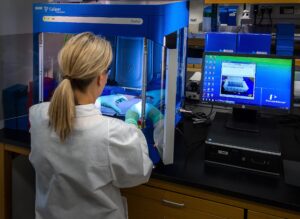
The gig economy has also created new challenges for workers, such as the lack of benefits and job security. However, some companies are starting to offer gig workers benefits like health insurance and retirement plans. The gig economy is likely to continue growing, and it will be interesting to see how companies and workers adapt to this new way of working.
Artificial Intelligence and Automation Artificial intelligence (AI) and automation have the potential to transform the way we work. AI-powered tools like chatbots and virtual assistants can automate repetitive tasks, allowing workers to focus on more complex and creative work. AI can also help companies make better decisions by analyzing data and identifying patterns.
The COVID-19 pandemic has changed the way we work and do business. Remote work has become the norm, and companies have had to adapt to a more digital and virtual way of working. Technology has played a significant role in this transformation, and it is poised to continue shaping the future of work. In this article, we’ll explore how technology is changing the way we work and what the future of work may look like.
Remote Work and Collaboration Tools The pandemic has accelerated the adoption of remote work and collaboration tools. Workers have had to learn to collaborate virtually, and companies have had to provide their employees with the necessary tools and infrastructure to work remotely. The rise of video conferencing software like Zoom and Microsoft Teams has made it easier for teams to communicate and collaborate from anywhere in the world.
Collaboration tools like Slack, Asana, and Trello have also made it easier for teams to manage projects, share information, and stay organized. These tools have become essential for remote teams, allowing them to stay connected and work together seamlessly.
The Gig Economy The rise of the gig economy has been fueled by technology. Platforms like Uber, Lyft, and Airbnb have disrupted traditional industries and created new opportunities for workers. These platforms have made it easier for people to find work and earn income on their terms.

Automation is already changing the way we work. Robots and machines are taking over jobs that are repetitive, dangerous, or require a high degree of precision. This trend is likely to continue, and it is important for workers to develop skills that cannot be easily automated.
The Ethical Considerations of AI in the Future of Work
As AI continues to become a more significant part of the workplace, ethical considerations must be taken into account. The ability of AI to automate many tasks can be a double-edged sword. While it can increase efficiency and productivity, it can also lead to job loss and even exacerbate inequality. As AI becomes more advanced, it is important to consider its impact on workers and society as a whole.
One ethical consideration is the potential for AI to perpetuate bias and discrimination. If AI is trained on biased data, it can perpetuate and even amplify existing biases. For example, if a hiring algorithm is trained on data that is biased against certain groups, it could perpetuate that bias and prevent qualified candidates from being considered for a position. It is important to ensure that AI is trained on unbiased data and that algorithms are regularly audited to prevent bias.
Another ethical consideration is the potential for AI to monitor and control workers. As AI becomes more integrated into the workplace, there is a risk that it could be used to monitor and control workers in ways that are unethical or even illegal. For example, an employer could use AI to track workers’ productivity and use that data to punish or reward workers based on their performance. It is important to ensure that AI is used in a way that respects workers’ privacy and autonomy.
Finally, there is the concern that AI could exacerbate inequality. As AI takes over more tasks, it is possible that certain jobs and industries will become obsolete, leading to job loss for many workers. This could exacerbate inequality and lead to a widening wealth gap. It is important to ensure that workers have access to training and education opportunities to prepare them for the changing job market.
Upskilling and Reskilling The rapid pace of technological change means that workers need to be continuously learning and updating their skills. The jobs of the future will require workers to be more adaptable, flexible, and resilient.
Upskilling and reskilling are essential for workers who want to stay relevant in the job market. Upskilling involves developing new skills in your current field, while reskilling involves learning new skills in a different field. Companies can help their employees upskill and reskill by providing training and development programs.
The Future of Work The future of work is likely to be more digital, flexible, and automated. Technology will continue to shape the way we work, and companies and workers will need to adapt to these changes. Here are some trends that are likely to shape the future of work:
- More remote work: Remote work is likely to continue even after the pandemic. Workers will expect more flexibility and the ability to work from anywhere in the world.
- The rise of the gig economy: The gig economy is likely to continue growing, creating new opportunities and challenges for workers and companies.
- Automation and AI: Automation and AI will continue to change the way we work, with machines and robots taking over more tasks.
- Upskilling and reskilling: Workers will need to continuously upskill and reskill to stay relevant in the job market.
- The importance of soft skills: As machines take over more tasks, workers will need to focus on developing their soft skills, such as communication, creativity, and critical thinking.
Conclusion
The future of work is rapidly changing, and technology is playing a significant role in shaping it. Remote work, collaboration tools, the gig economy, automation, and AI are all likely to play a significant role in the future of work. As we navigate these changes, it is important to consider the ethical implications and ensure that technology is being used in a way that benefits workers and society as a whole. With the right approach, technology can be a powerful tool to increase efficiency and productivity while also creating a more equitable and sustainable future of work.






